Xi Jinping and Vladimir Putin hold court in defiant rulers’ club
Xi Jinping and Vladimir Putin discussed their ‘unprecedented’ close ties and ‘common views’ on security as the strongmen held an in-person meeting in Beijing.
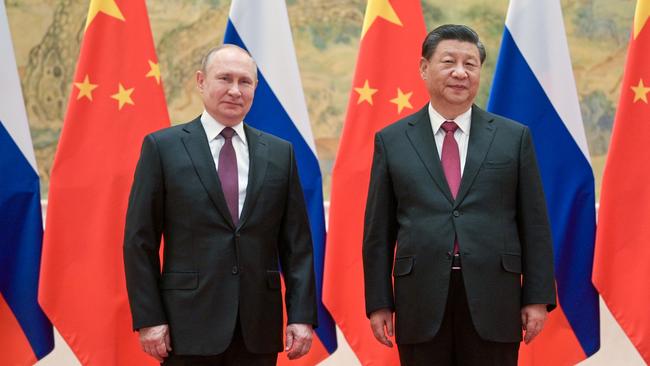
China’s President Xi Jinping and his Russian counterpart, Vladimir Putin, discussed their “unprecedented” close ties and “common views” on security as the strongmen held a defiant in-person meeting in Beijing hours before the opening of the 2022 Winter Olympics.
The co-ordination of foreign policy between Mr Xi and Mr Putin at Beijing’s Diaoyutai State Guesthouse late on Friday was held as the Russian leader contemplates launching war during an Olympics for the third time in his two decades in power. He has deployed more than 100,000 troops on the border of Ukraine, causing deep anxiety and warnings of “severe consequences” by the US and its allies.
China’s state broadcaster celebrated Mr Putin’s arrival late on Friday, playing footage of his jet arriving in Beijing.
“I have known President Xi Jinping for a long time,” CCTV quoted Mr Putin as saying. “As good friends and politicians who share many common views on solving world problems, we have always maintained close communication.”
Mr Xi’s choice of Mr Putin for his first in-person meeting with another world leader in two years continues China’s push against the American alliance system.
The two leaders criticised Washington’s “negative impact on peace and stability” in the Asia-Pacific region, saying they were “seriously concerned” by the AUKUS defence alliance between Australia, Britain and the US, especially their co-operation on nuclear submarines.
“Russia and China believe that such actions are contrary to the tasks of ensuring the security and sustainable development” of the region and “increase the danger of the start of an arms race”.
In an article Mr Putin published in Chinese state media shortly before arriving in Beijing, he said the two countries shared an overlapping worldview.
“Foreign policy co-ordination between Russia and China is based on close and coinciding approaches to solving global and regional issues,” Mr Putin wrote.
Mr Putin – anointed by Beijing as the most important guest at the Games – also lashed out at the diplomatic boycott of the Winter Olympics by the US, Australia, the UK, Canada, Japan and other countries because of the Chinese government’s human rights violations. “Sadly, attempts by a number of countries to politicise sports for their selfish interests have recently intensified. This is fundamentally wrong and contrary to the very spirit and principles of the Olympic Charter,” he said.
The Russian leader has twice waged war during the Olympics, including at Beijing’s 2008 summer Games when his army invaded Georgia while he was in China’s capital. Six years later, Mr Putin greenlit an invasion of Crimea just as he was finishing hosting duties at the 2014 Winter Olympics in Sochi.
Hours before watching the opening ceremony with Mr Xi and Mr Putin, the head of the International Olympic Committee, Thomas Bach, said it was not his place to get involved in political matters. “This is up to the (UN) Security Council,” Mr Bach said.
Beijing has increased co-operation with Russia as its relations have soured with the US and its allies during Mr Xi’s reign. Last week, Foreign Minister Wang Yi called Russia’s security concerns “legitimate”, saying they should be “taken seriously and addressed”.
However, the threats of war by Beijing’s guest of honour have complicated Mr Xi’s messaging that these Olympics will play an important role “galvanising global solidarity”.
Ryan Hass, a former director for China on the US National Security Council, said while Chinese officials were parroting Moscow’s talking points, the potential war in Ukraine was creating a “diplomatic jam” for Beijing.
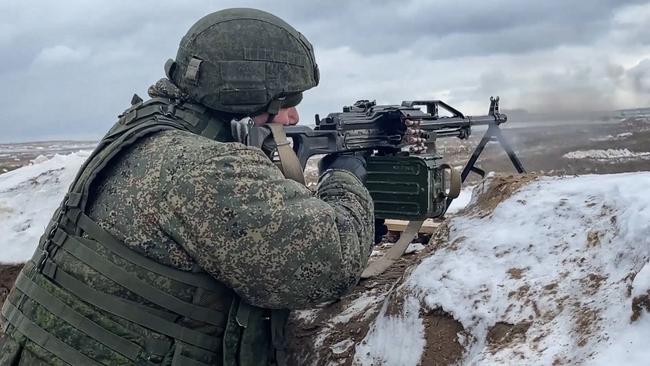
“(China) would face difficulties and unwelcome turbulence from a conflict in Ukraine, but at the same time it wants to preserve strong relations with Russia and it does not want to do the US any favours,” said Mr Hass, now a senior fellow at the Brookings Institution.
“Chinese officials also recognise that Beijing will be found guilty by association if Russia invades Ukraine after Putin’s meeting with Xi. China will suffer significant reputational damage, especially in Europe and the US, for being seen as Russia’s enabler.”
Mr Xi has not left China since January 2020, when the country was grappling with its initial Covid-19 outbreak. His decision to invite Mr Putin to these Games required him to overrule a ban on all Russian officials imposed by the World Anti-Doping Agency because of state-sponsored doping at the Sochi Olympics.
The Russian team will not be allowed to compete under its country’s flag at these Olympics as part of the punishment.
Mr Putin called Mr Xi a “dear friend” and in a December phone call hailed their “model” diplomatic relations. Chinese state media in turn portray Mr Putin as Mr Xi’s best friend on the international stage.
“Since 2013, President Xi and President Putin have met each other about 30 times on various occasions, which is rare in global diplomacy,” the Global Times said on Thursday. “Besides the official meetings, the two also shared some close moments like enjoying vodka, caviar and Russian ice cream and celebrating each other’s birthdays,” the party state- controlled paper reported.
Just over 20 leaders joined Mr Xi for the opening ceremony, as many kept away because of concerns about China’s human rights abuses in Xinjiang, Hong Kong and its menacing of Taiwan.
Among those attending with Mr Xi were Egypt’s Abdel Fattah el-Sisi, Saudi Arabia’s Mohammed bin Salman, Kazakhstan’s Kassym-Jomart Tokayev and Poland’s Andrzej Duda. Papua New Guinea Prime Minister James Marape was also there, telling Chinese state media the event would send a “positive message” during the pandemic. Mr Marape said he wanted to use his visit to attract more investment from Chinese companies to add value to PNG’s natural resources.


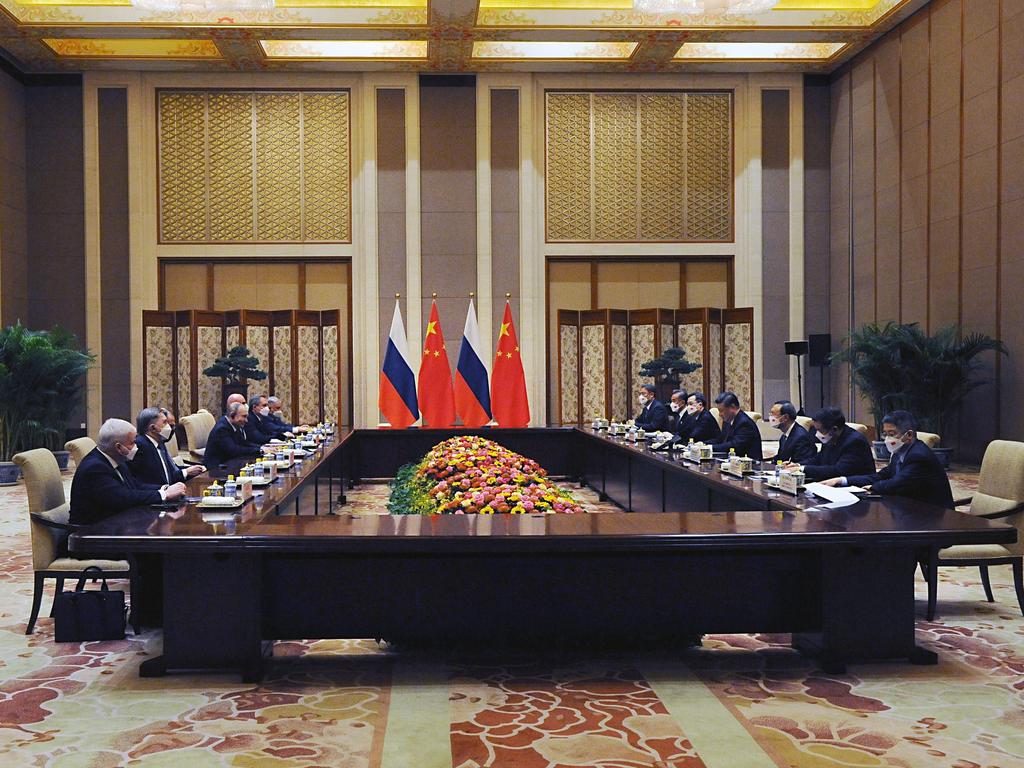
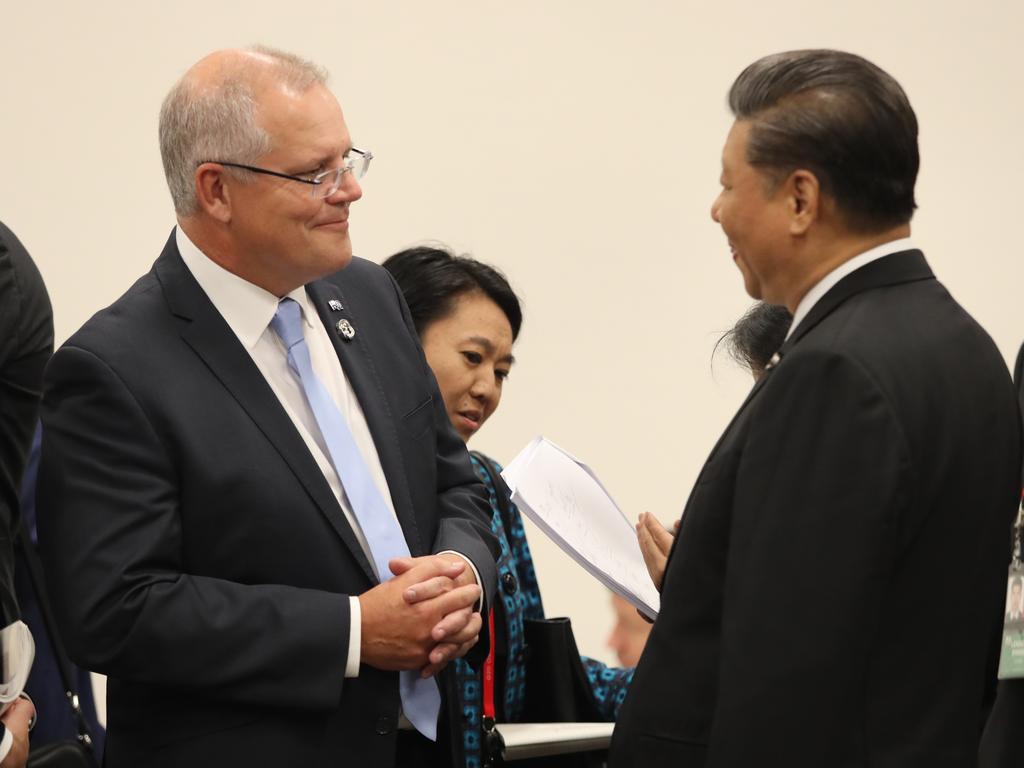

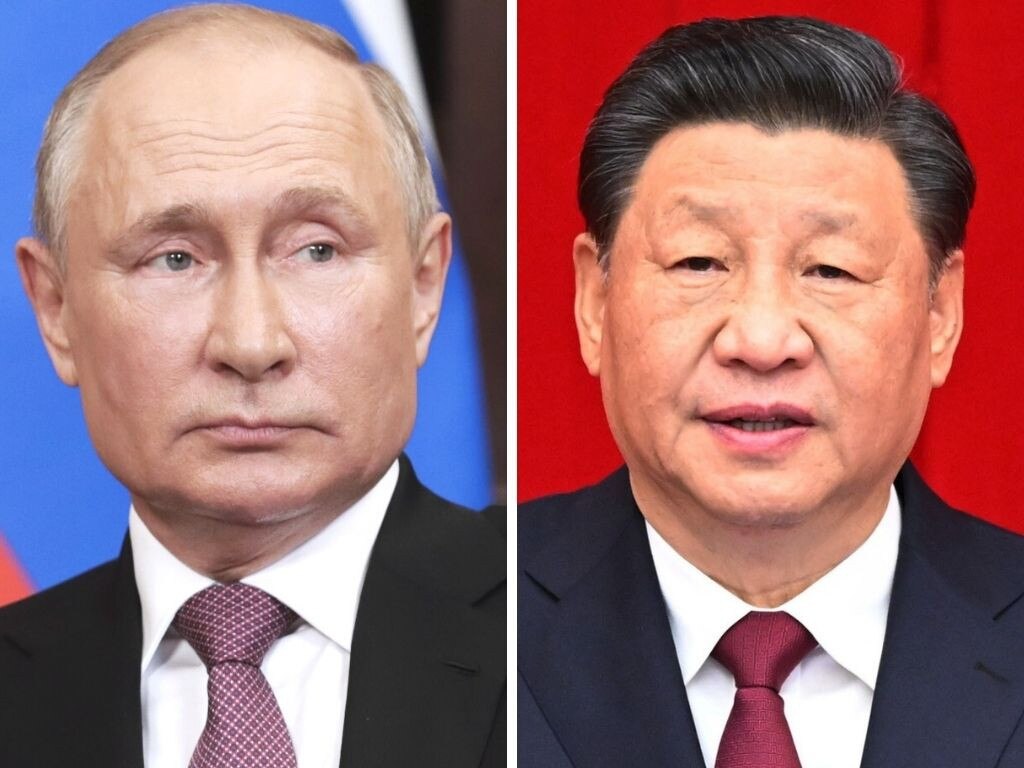


To join the conversation, please log in. Don't have an account? Register
Join the conversation, you are commenting as Logout